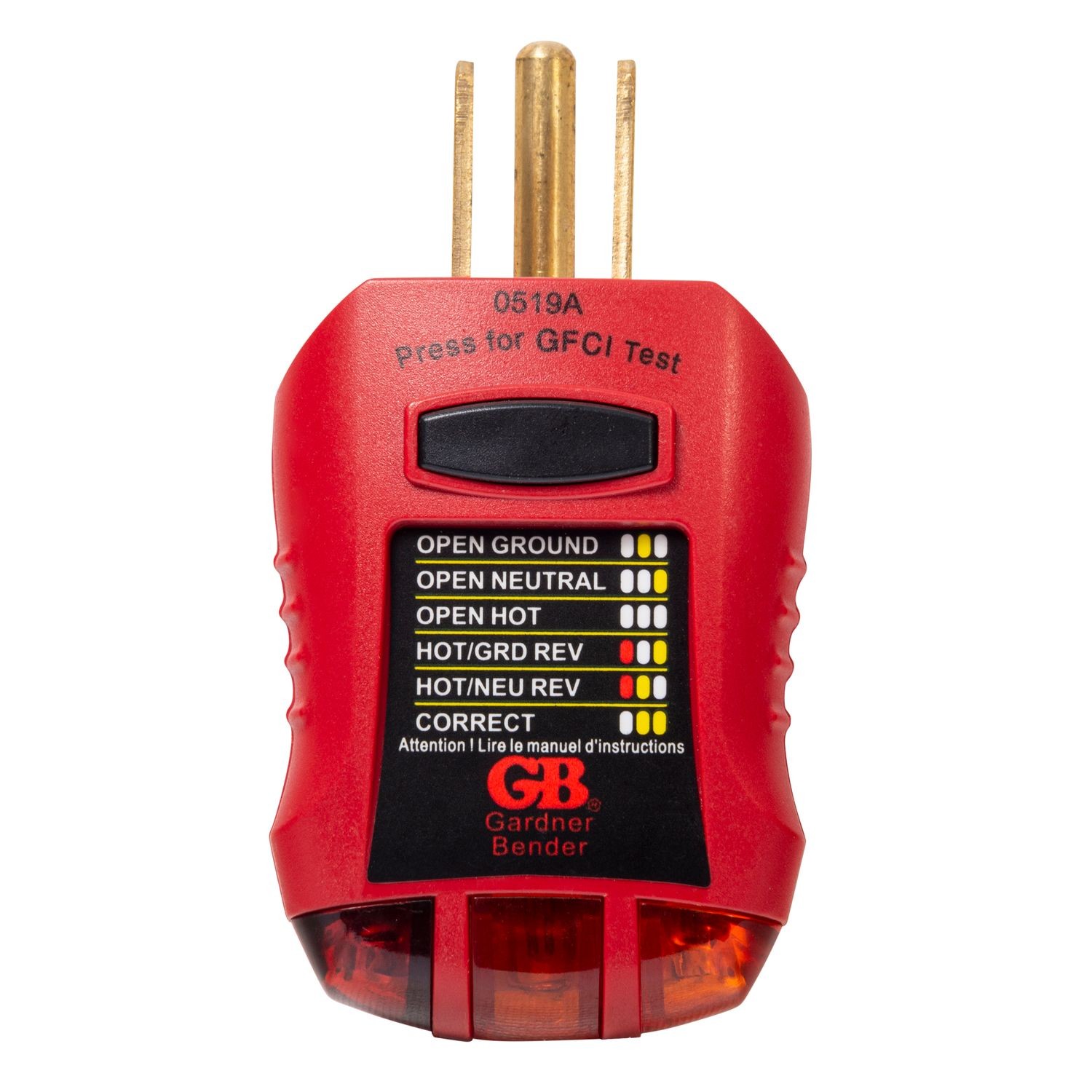How Do You Know if Energized Lines and Equipment are Safe?

Residences in North America (and a few other countries) use 110-120 volt circuits. When working on such lines and equipment, there are several options available to detect and measure the amount of voltage and current present.
 The simplest devices plug into any standard 3-prong outlet and indicate the wiring condition of the outlet: ground fault interruption, open ground, open neutral, open hot, hot/ground reverse, hot/neutral reverse, and correct wiring. Such devices use indicator lights rather than meters.
The simplest devices plug into any standard 3-prong outlet and indicate the wiring condition of the outlet: ground fault interruption, open ground, open neutral, open hot, hot/ground reverse, hot/neutral reverse, and correct wiring. Such devices use indicator lights rather than meters.
Voltage Detectors in Industrial Settings
 Workers in all types of industrial and commercial facilities can be exposed to electrical energy. Electrical violations consistently appear within the top ten most cited OSHA violations. Ideally when working on or near electrical equipment the first step is to de-energize the equipment; the second step is to follow lockout tagout procedures; and the third step is to verify the absence of voltage with a proximity voltage detector. BUT there are times when it is necessary to work on energized lines and equipment. That
Workers in all types of industrial and commercial facilities can be exposed to electrical energy. Electrical violations consistently appear within the top ten most cited OSHA violations. Ideally when working on or near electrical equipment the first step is to de-energize the equipment; the second step is to follow lockout tagout procedures; and the third step is to verify the absence of voltage with a proximity voltage detector. BUT there are times when it is necessary to work on energized lines and equipment. That  calls for wearing rubber insulating gloves rated for use up to 1000 volts AC or 1500 volts DC. Remember that rubber insulating gloves need to be retested at regular intervals in compliance with OSHA regulations and ASTM specifications.
calls for wearing rubber insulating gloves rated for use up to 1000 volts AC or 1500 volts DC. Remember that rubber insulating gloves need to be retested at regular intervals in compliance with OSHA regulations and ASTM specifications.
Exposure to Electricity in Construction and Storm Response
Outdoor workers, especially in construction, are generally keenly aware of overhead and underground power lines. When working in proximity to such equipment, the lines are often covered by rubber insulating blankets and line coverings, or totally de-energized and grounded. But to be sure, the same type of proximity voltage detector can be used to indicate the presence of electricity. The universal attachment allows the voltage detector to be used from a safe distance by affixing it to a fiberglass hot stick.
and underground power lines. When working in proximity to such equipment, the lines are often covered by rubber insulating blankets and line coverings, or totally de-energized and grounded. But to be sure, the same type of proximity voltage detector can be used to indicate the presence of electricity. The universal attachment allows the voltage detector to be used from a safe distance by affixing it to a fiberglass hot stick.
 An internet search for “downed power line” will result in links to nearly every major power company’s website with instructions on how to report a downed power line. For the workers responsible for repairing the power lines, knowing whether there is voltage exposure is a critical life-saving challenge. Certainly, the same proximity, non-contact voltage detectors can identify energized lines and equipment up to 500 kv depending on the model. An alternative is to utilize a passive personal voltage and current detector that attaches to all brands of safety caps and hats and provides both an audio and directional visual indication of the presence of energized lines and equipment.
An internet search for “downed power line” will result in links to nearly every major power company’s website with instructions on how to report a downed power line. For the workers responsible for repairing the power lines, knowing whether there is voltage exposure is a critical life-saving challenge. Certainly, the same proximity, non-contact voltage detectors can identify energized lines and equipment up to 500 kv depending on the model. An alternative is to utilize a passive personal voltage and current detector that attaches to all brands of safety caps and hats and provides both an audio and directional visual indication of the presence of energized lines and equipment.
Daily Work Practices
As always, personal protective equipment should be inspected at the start of every work shift and immediately after any event that may cause damage to the product and reduce safety.
Connect with Saf-T-Gard to Learn More
Industrial safety is our legacy going back 9 decades. For an overview of our specialized products and services for electrical safety, please visit Electrical Safety.

